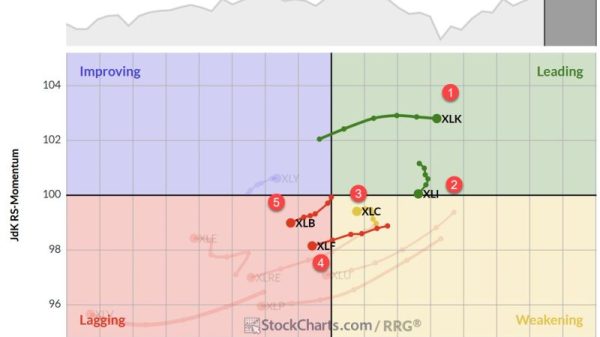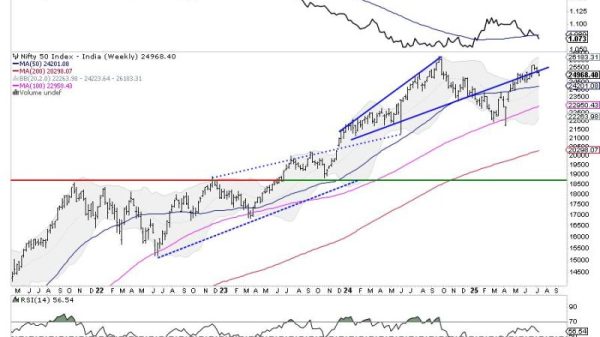China has emerged as the leading market for generative AI usage, according to a recent global study conducted by SAS and Coleman Parkes Research.
Generative AI is a subfield of artificial intelligence focused on the creation of entirely new content. These AI models can process a wide variety of inputs, including text, images, audio, animation, 3D models, and other data formats, to generate corresponding novel outputs.
The SAS and Coleman Parkes study surveyed 1,600 decision-makers and organizations from various sectors, including banking, insurance, public sector, life sciences, healthcare, telecommunications, manufacturing, retail, energy and professional services.
It found that 83 percent of Chinese organizations are currently using generative AI technology, or GenAI, surpassing the United Kingdom at 70 percent, the United States at 65 percent and Australia at 63 percent.
However, when it comes to full implementation of GenAI, the United States took the top spot, with 24 percent of its organizations fully integrating the technology, compared to China’s 19 percent and the United Kingdom’s 11 percent.
The study also highlights the varying rates of generative AI adoption across different regions. North America is in the lead when it comes to full adoption, with 20 percent of organizations fully using and implementing generative AI into their processes. It’s followed by Asia-Pacific at 10 percent, Latin America at 8 percent, and both European regions surveyed at 7 percent.
Despite China’s lead in adoption rates, the study reveals that higher adoption does not necessarily translate to effective implementation or better returns.
‘While China may lead in GenAI adoption rates, higher adoption doesn’t necessarily equate to effective implementation or better returns,’ Coleman Parkes Managing Director Stephen Saw said.
Bryan Harris, Executive Vice President and CTO at SAS, supported this by emphasizing the need for purposeful implementation.
‘With any new technology, organizations must navigate a discovery phase, separating hype from reality, to understand the complexity of real-world implementations in the enterprise,’ he said. “We have reached this moment with generative AI. As we exit the hype cycle, it is now about purposefully implementing and delivering repeatable and trusted business results from GenAI.’
A 2023 report by McKinsey estimated that the use of generative AI could add value between US$2.6 trillion to US$4.4 trillion annually in economic benefits across various sectors, further emphasizing the importance of the rising tech in global markets.
Increasing GenAI adoption raises questions
Despite the surface-level benefits of generative AI adoption, data privacy and safety remain critical challenges that organizations and regulators face.
The study showed that a significant portion of organizations admitted to lacking a clear generative AI strategy, with only 9 percent of leaders saying that they are ‘extremely familiar’ with their organization’s generative AI adoption strategy.
Furthermore, only a tenth of organizations feel fully prepared to comply with upcoming AI regulations, and only 7 percent said that they are providing high-level training on GenAI governance.
SAS Strategic AI Advisor Marinela Profi maintains that responsible use and maintenance is key to maximizing GenAI’s returns. ‘GenAI should be treated as an ideal contributor to hyper-automation and the acceleration of existing processes and systems rather than the new shiny toy that will help organizations realize all their business aspirations.’
Other concerns include insufficient data to fine-tune large language models (LLMs), a lack of appropriate tools for successful AI implementation and issues with regulation compliance. Only 5 percent of organizations have a reliable system in place to measure bias and privacy risks in LLMs.
Despite these challenges, early adopters of generative AI reported significant benefits.
According to the same study, 89 percent of organizations have experienced improved employee experience and satisfaction, 82 percent have saved operational costs and 82 percent have seen higher customer retention.
The study coincides with the recent rise of AI systems, both in ground-level adoption and surging market shares of industry leaders.
More specifically, the market for AI chips has experienced a boom, and generative AI stocks such as Nvidia (NASDAQ:NVDA), Google (NASDAQ:GOOGL), Apple (NASDAQ:AAPL) and Microsoft (NASDAQ:MSFT) are leading the fray.
Securities Disclosure: I, Giann Liguid, hold no direct investment interest in any company mentioned in this article.

































